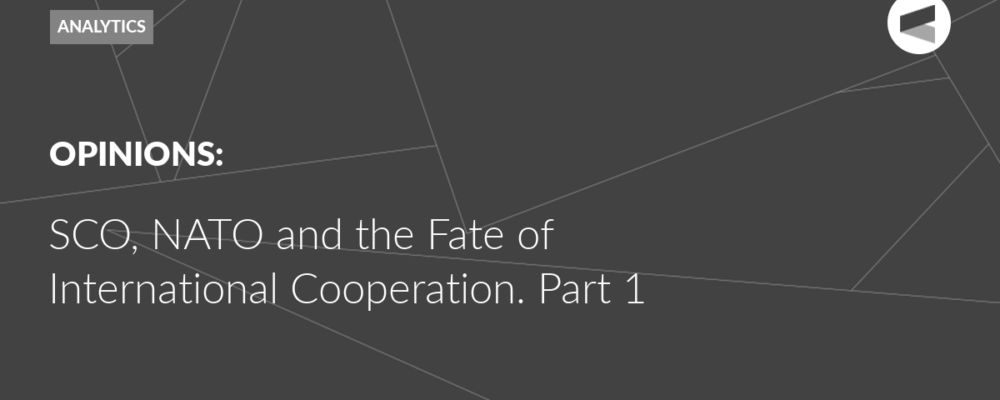China’s interest in the Arctic is not as significant as many Western analysts believe. Chinese policy continues to focus on more nearby regions—Taiwan and the South China Sea, Pavel Devyatkin writes. The author is a participant of the Valdai – New Generation project.
Russia has maintained a strong position in the Arctic for centuries, while Chinese interests in the region have only developed in recent decades. Cooperation between Russia and China is developing in Arctic energy, shipping, natural resource development, and scientific research. Western sanctions against Russia have contributed to increased engagement with China on Arctic energy and shipping projects, but the growing ties are part of a longer-term trend that began long before the current conflict in Ukraine.
Russian-Chinese cooperation in the Arctic is part of larger geoeconomic projects such as the Greater Eurasian Partnership (GEP) and BRICS. The Arctic is viewed as a strategic turning point in Eurasia, with a key focus on the development of natural resources and industry. The Arctic has been integrated into broader Eurasian transport and economic integration projects. China’s activities within the GEP and BRICS have allowed it to consolidate its presence in the Arctic and play a significant role in environmental protection, natural resource development, and shipping logistics, while simultaneously emphasising its willingness to cooperate and maintain diplomatic balance. These platforms serve as alternative institutions for China and offer an opportunity to expand its role in the Arctic, despite its observer status in the Arctic Council.
Russian-Chinese cooperation in the Arctic is formally enshrined in joint statements and declarations. The 2021 extension of the 2001 Treaty on Good-Neighbourhood and Comprehensive Cooperation, as well as the 2022 joint declaration on the “International Relations Entering a New Era and the Global Sustainable Development”, emphasise the need to strengthen cooperation in the Arctic economy. The 2022 declaration proclaimed that “the friendship between the two countries knows no bounds” and emphasised the desire to consistently expand practical cooperation for the sustainable development of the Arctic. It’s important to note that security cooperation is taking place within the context of economic interests. Security is primarily linked to ensuring security in a region of growing economic importance. Initiatives include joint coast guard exercises, maritime rescue operations, and law enforcement. At the same time, the armed forces of Russia and China also conduct joint military exercises and manoeuvres.
In recent years, Chinese Xian H-6 bombers have participated in joint exercises with Russian Tu-95MS aircraft over the Chukchi and Bering Seas and the North Pacific Ocean. Last year, the navies of China and Russia conducted the largest joint manoeuvres since the 1990s: Ocean 2024. Russian media associate the revival of such “Cold War-era practices” with rising tensions with the United States. The exercises took place in the Pacific and Arctic Oceans, as well as in the Mediterranean, Caspian, and Baltic Seas.
The Russian Ministry of Defence has stated that these exercises are aimed at testing combat readiness and expanding cooperation with naval partners in addressing joint maritime challenges. The Chinese Coast Guard and the Russian Border Service conducted their first joint maritime patrol in the North Pacific Ocean, marking the Chinese Coast Guard’s first foray into the Arctic Ocean. The Chinese noted that these exercises have contributed to the expansion of navigational capabilities in unfamiliar waters and provided strong support for China’s active participation in international and regional ocean governance.
Despite growing cooperation, Russia and China do not officially have a military alliance; both sides emphasise that their relationship constitutes a “comprehensive strategic partnership of new-generation coordination”. The Pentagon places particular emphasis on the nature of security cooperation. In response to the description of the threat posed by Russian-Chinese cooperation in the Arctic region in the Pentagon’s 2024 Arctic Strategy, Russian presidential press secretary Dmitry Peskov rejected the claims, emphasising that Russian-Chinese cooperation is not directed against third countries and promotes stability.
The Chinese Ministry of Foreign Affairs shares a similar view. Foreign Ministry spokesperson Mao Ning criticised the Pentagon’s strategy, stating that China is committed to promoting peace, stability, and sustainable development in the Arctic. Chinese Ministry of Defence spokesman Zhang Xiaogang noted that the 2024 joint coast guard patrol “deepened strategic trust and substantive cooperation between the military of the two countries, is not directed against third parties, complies with international law and practice, and is unrelated to current international and regional developments”.
Thus, the military aspect of Russian-Chinese cooperation in the Arctic is systematically denied by official authorities. They deliberately avoid portraying these actions as a show of force against the United States, as this could be used to legitimise the increased military presence of NATO and the United States in the region. Such a dynamic could lead to a vicious cycle in which states try to outpace each other in ensuring security and protecting their interests.
The emphasis on the peaceful aspects of cooperation may also reflect a strong desire to preserve Arctic exceptionalism—the notion that the region maintains a special atmosphere of peace and cooperation, untouched by other political conflicts. Russian and Chinese official rhetoric conveys an image of benevolent intentions. This is particularly important for China, as its military involvement in the Arctic would prompt suspicion and isolation from international Arctic institutions.
For many years, Western politicians and media have tended to view Russian military exercises in the Arctic as aggressive. This became especially acute after 2007, when Russian scientists planted a Russian flag on the North Pole seabed—a symbolic act with no legal consequences. Growing concerns about China emerged later and are linked to the Trump administration’s Arctic strategy, which downplayed climate change and emphasised China as the main threat to regional security, especially in conjunction with Russian cooperation.
Despite this, since 2019, US strategic documents and public statements have increasingly emphasised coordinated Russian and Chinese activities in the Arctic. At the 2019 Ministerial Arctic Council in Finland, US Secretary of State Mike Pompeo declared, “We are entering a new era of strategic engagement in the Arctic,” sharply distancing American leadership from the behaviour patterns of China and Russia, and rejecting China’s claim to be a “near Arctic state.”
Russian-Chinese security cooperation in the Arctic is strengthening. Officially, it is not directed against any third countries and complies with international law. China does not have a permanent military presence in the region and is unlikely to intend to create a military infrastructure comparable to Russia’s. Moscow would likely oppose any such expansion.
Furthermore, China lacks the military and technical capabilities to conduct full-fledged military operations in the Arctic. Its presence is currently limited to joint exercises within the Arctic circle and away from Russian Arctic territories.
China’s interest in the Arctic, however, is not as significant as many Western analysts believe. Chinese policy continues to focus on more nearby regions—Taiwan and the South China Sea. Although China is a global strategic opponent, it does not rival the Arctic states in terms of influence and presence in the Arctic. Overestimating China’s role in the Arctic could inadvertently strengthen its claims to the status of a “near Arctic state” with legitimate rights to the region.
At the same time, the Arctic will remain an important element of Russian-Chinese relations and a strategic node in the Arctic Triangle. Amid US President Donald Trump’s rhetoric about “Chinese ships all around Greenland”, Washington will likely continue to view China’s role in the Arctic negatively.
The Valdai Discussion Club was established in 2004. It is named after Lake Valdai, which is located close to Veliky Novgorod, where the Club’s first meeting took place.
Please visit the firm link to site






